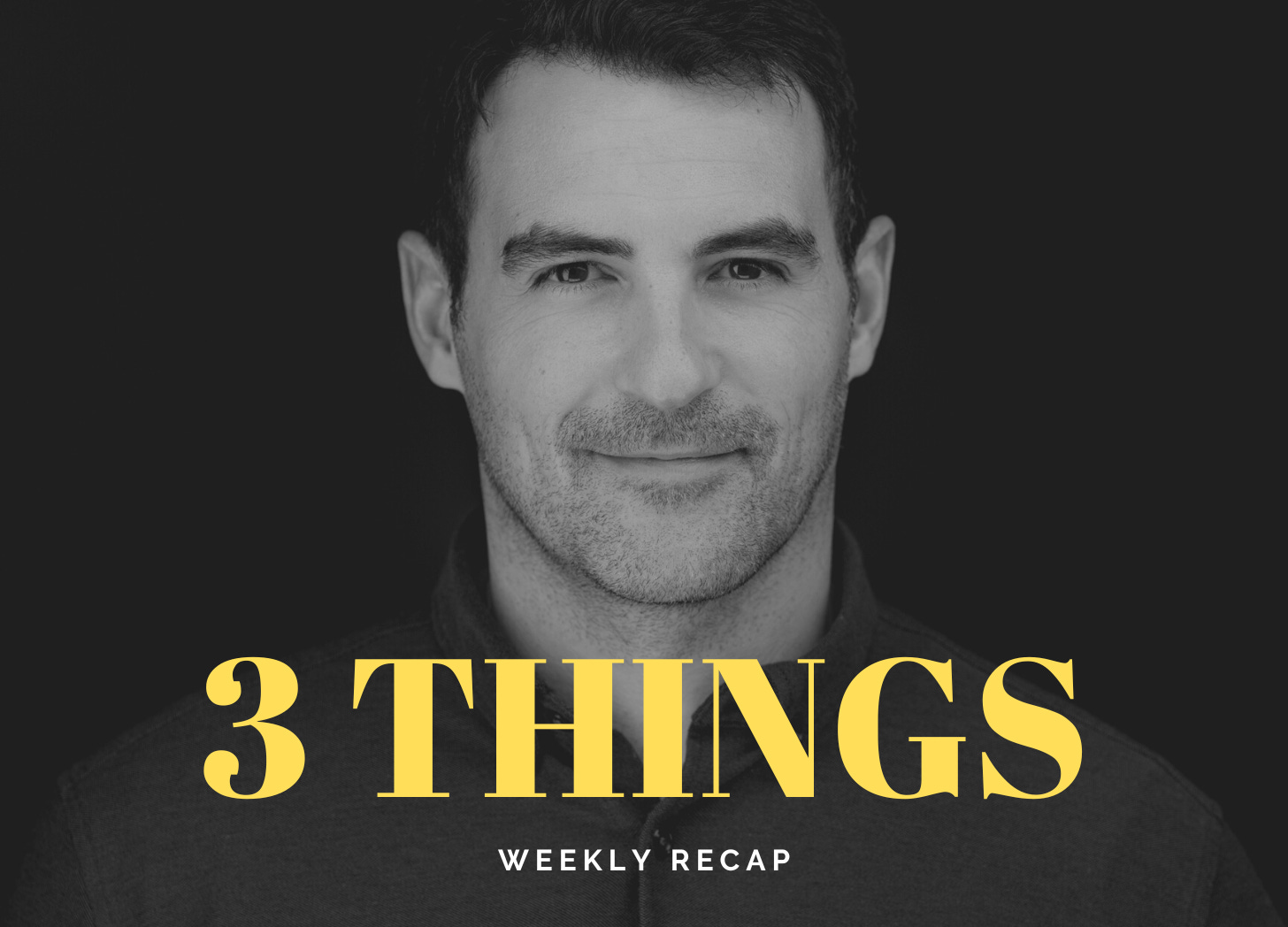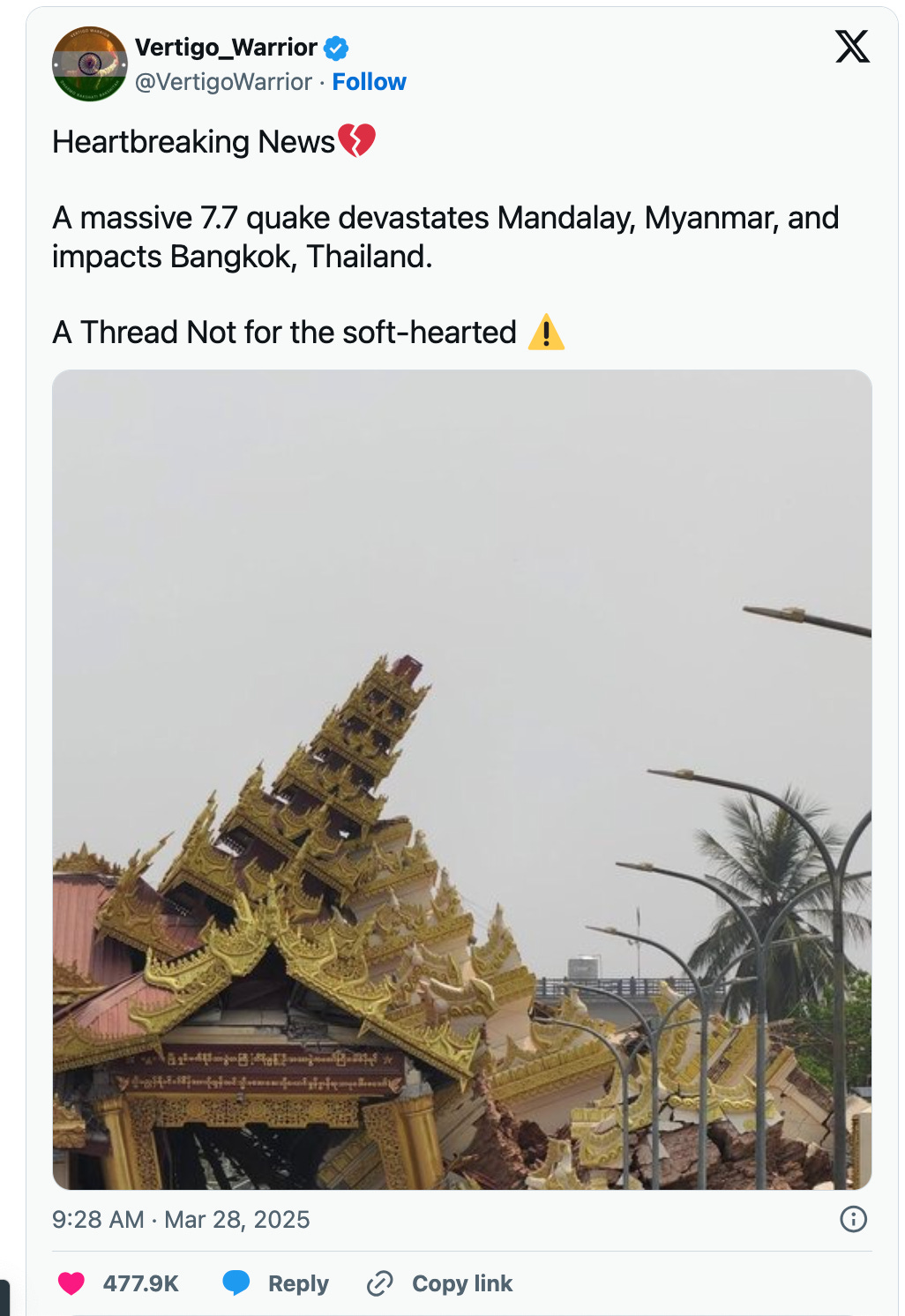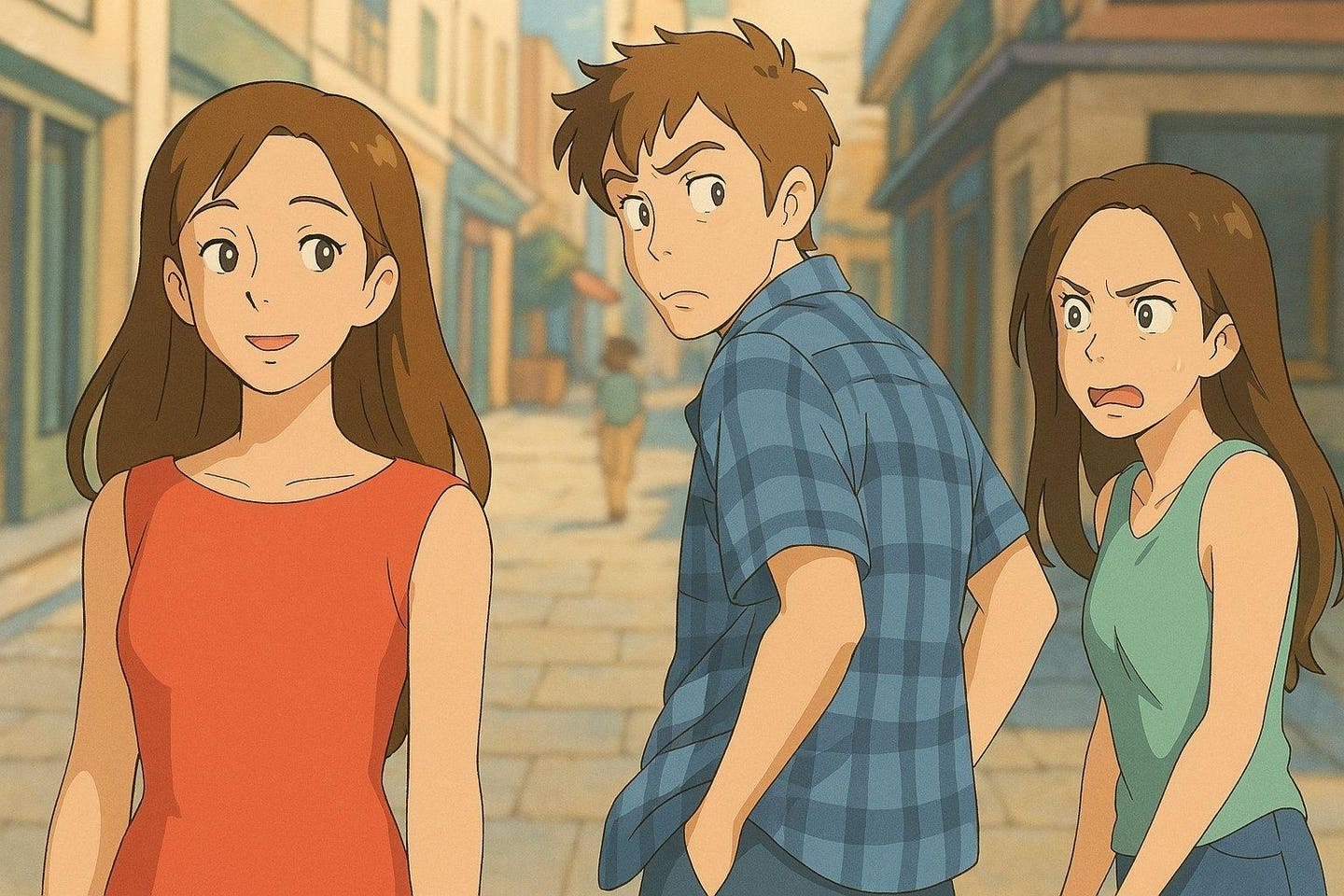Your ancestors are bankrupt; Asia rocked by earthquake; Is AI an insult to life itself?
3 Things this week and a memorable quote
We can’t kick the bad weather, no matter what we try. After decades of Spring in Canada, you’d think I’d learn. But no. I’m longing for sunshine and above zero temperatures that last for more than a single day.
I talked to a friend in South Carolina this week who is in the two week period they all wait for in that state: warm and sunny, but not the hot hot heat or humidity. We’re such funny creatures, weather permitting.
I’ve had over 100 new readers subscribe in the last few weeks, which for Things I Wrote Down is big growth. A big welcome to all of you who are new, especially if this is your first 3 Things.
If you’re here because of the poetry contest, that thrills me! You can submit here.
Thanks for spending part of your weekend with Things I Wrote Down. Here are three things and a quote about memory that made me stop and think.
1. Your ancestors are bankrupt
So, was it worth it? Now that you know your ancestors were part Irish, what happens to your personal data?
23andMe the company that offered ancestry testing kits filed for bankruptcy this week. And questions remain about what will happen with the data. It most likely will be sold to other firms.
Having read enough crime novels, I imagine law enforcement agencies are salivating over the opportunity to acquire the database, but much of the data is already out there on the dark web since a hack of the company took place in 2023 and exposed the data of 7 million users.
If you have an account, the recommendation is to delete the data now, to limit exposure, though it may be too late.
The bad news is your ancestors are now bankrupt and your data may be sold. The good news is that your ancestors faced difficult things in the past. They passed on their resilience to you. So, you've got this!
2. Asia rocked by earthquake
The images out of Myanmar and Thailand are devastating. Did you hear about the 7.7 magnitude earthquake there?
This thread on X captured so much of the devastation. I’ve seen photos of window washers riding out the tremors as they cling to the rope. The tragic video of a crane crashing to the ground with the operator inside. Buildings climbing to the sky under construction in one moment knocked to the ground.
It’s unbelievable stuff. CNN is reporting that more than 1600 people have died in Myanmar with more than 1200 homes destroyed. The NPR, facing it’s own exestential earthquake this week, shared a slideshow of the aftermath in the region. Your heart will skip a beat.
Friends who live and work in the region sent out an email letting us know they were okay, which is such a relief. It will be years of rebuilding. Say a prayer for the survivors who will rebuild and those mourning such terrible loss.
I’m writing a new fiction series week-over-week. It’s a supernatural, political thriller called The 49.
3. Is AI an insult to life itself?
Have you noticed all the AI art that took over the internet this week in the style of famous Japanese artist Hayao Miyazaki? He’s a co-founder of Studio Ghibli, which famously denounced AI art, describing it as “an insult to life itself.”
Based on the latest trend, AI is meant as the biggest compliment to him and his work.
Miyazaki painstakingly hand illustrates all his animations, creating masterpiece films that are years in the making. And now with a few commands through the help of ChatGPT’s latest release, keyboard warriors are mimicking his style.
People are taking this new AI trend in a lot of directions, recreating popular memes, like the famous “distracted boyfriend” one above. The VP of Missionary recreated an evangelistic film in the style and outlined his process, creating a trailer in a 9-hour nerd session using three or four AI platforms to pull off the effect (and outlining the process in a popular post).



What’s your take. Is it an insult or, is this imitation the greatest form of flattery?
A quote
I asked for C.S. Lewis’ space trilogy for Christmas. I’m finally getting around to reading it again.
The first time I read the book was when I found it on the shelf of a run-down, Russian-built apartment in Mongolia, on the edge of the Gobi desert, when I taught English for a summer in University. I shared the apartment for a few weeks with a friend, the author Mike Carrigan (whose new book - Somewhere Between Heaven and Golf - is on my reading list).
The series kept me entertained, especially during the regular power outages in the off hours. It’s fun to revisit it now. This quote, about memory, stood out:
'But the pleasure he must be content only to remember?’
‘That is like saying, “My food I must be content only to eat.”’
‘I do not understand.'
'A pleasure is full grown only when it is remembered. You are speaking, [Human], as if the pleasure were one thing and the memory another. It is all one thing.... When you and I met, the meeting was over very shortly, it was nothing. Now it is growing something as we remember it. But still we know very little about it. What it will be when I remember it as I lie down to die, what it makes in me all my days till then - that is the real meeting. The other is only the beginning of it. You say you have poets in your world. Do they not teach you this?…..And indeed,' he continued, 'the poem is a good example. For the most splendid line becomes fully splendid only by means of all the lines after it; if you went back to it you would find it less splendid than you thought.'
~ Out of the Silent Planet, C.S. Lewis (from the twelfth chapter)






